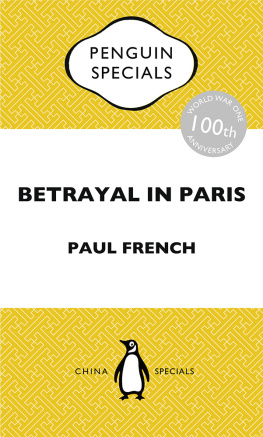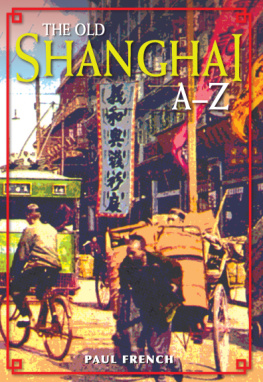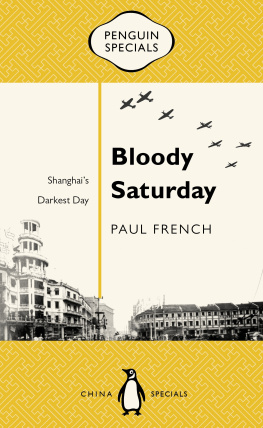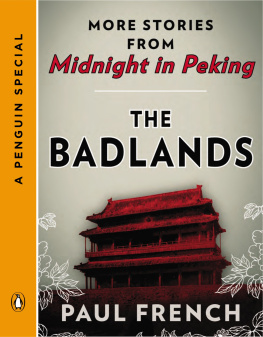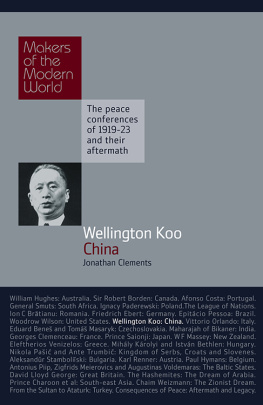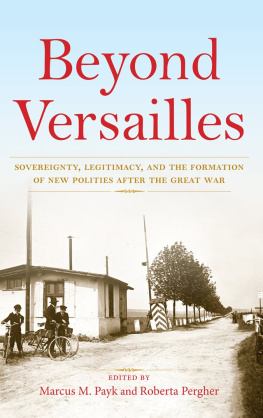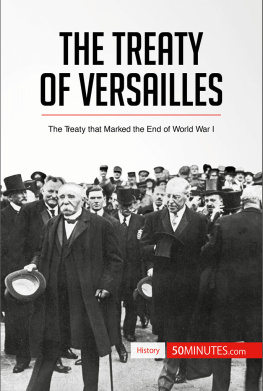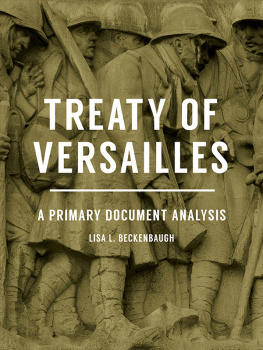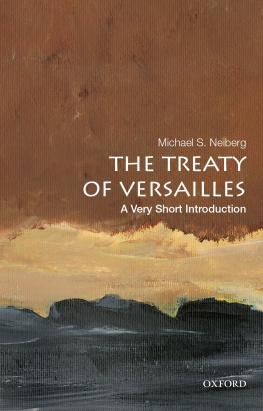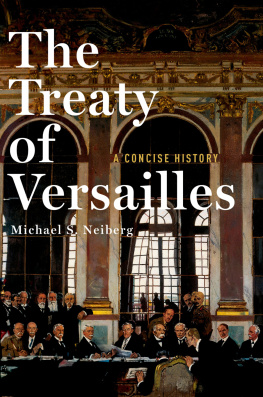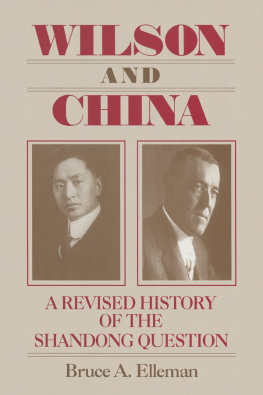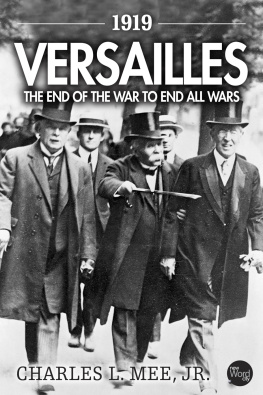Names in this book reflect the spellings most commonly used in 1919 in the various media and commentaries on the Treaty of Versailles. Hence Peking and not Beijing; Tsingtao and not Qingdao. Where Chinese people were commonly known by Western names in their dealings in Europe such as Wellington Koo and Alfred Sze these are used, rather than the Pinyin romanisations. As the writer and one-time Shanghailander Emily Hahn once commented when tackling the question of rendering Chinese into English, This writer has done her best but knows it is not good enough, and meekly bends her head before the inevitable storm.
Afterword
Fates of a Very Different Kind
The fates of the men who led the Chinese delegation to Versailles could not have been more different.
Wellington Koo married Oei Hui-lan, the woman he had courted throughout the Paris Peace Conference. They wed in Brussels in 1921, in a ceremony at the Chinese Embassy. The next day Koo left with his new bride to be Chinas first representative at the League of Nations in Geneva. After a stint there he returned to China and was briefly acting premier, interim president and foreign minister between 1926 and 1927, during a period of chaos in Peking under the Northern Warlord Chang Tso-lin (Zhang Zuolin aka the Old Marshal). For this Chiang Kai-shek, when he launched the so-called Northern Expedition to unify China and break warlord rule in 1927, was to declare Koo a criminal. However, Koo, ever the diplomat, rebuilt bridges and later worked closely with the nationalist government, advising Chiang on foreign affairs. He was to return to the league in 1932 to protest Japans invasion and annexation of Manchuria. He later served as the Chinese ambassador to France from 1936 until 1940, leaving only when the Nazis occupied Paris. He crossed the English Channel to take up the post of Chinese ambassador to Great Britain, a post he held until 1946 and thanks to which he became involved in the formation of the leagues successor, the United Nations. He returned to Washington as Chinas ambassador to the United States in 1946 and then, in 1949, joined the nationalist retreat to Taiwan as civil war descended and Chiang Kai-shek evacuated the nationalist government from mainland China. Starting in 1966 he sat for a decade as a judge at the International Court of Justice in The Hague. Wellington Koo died in 1985 in New York City. Though Koo worked for warlords, as well as republican leaders such as Yuan Shih-kai and Chiang Kai-shek, Koo appears nowadays to be partially rehabilitated in Communist China and was positively portrayed in the 1999 movie My 1919 as a patriot for all China.
Delegation leader Lou Tseng-tsiang bore the brunt of the blame for Chinas betrayal in France, despite his lack of involvement during his time in Paris. He was fired from the Chinese cabinet in May 1919 under intense pressure from May Fourth Movement activists, although he was subsequently appointed Chinas ambassador to Switzerland and then became Chinas envoy to the League of Nations between 1922 and 1927. Lous Belgian wife died in 1927 and he retired from public life. He became a postulant, under the name Dom Pierre-Clestin, in the Benedictine monastery of Sint-Andries in Bruges, Belgium. He was ordained a priest in 1935. During the Second World War he gave lectures in Europe about the Far East, in which he propagandised for the Chinese war effort against Japan. German security agents attended his lectures and took the names of the attendees. In August 1946 Pope Pius XII appointed Lou titular abbot of the Abbey of St Peter in Ghent, Belgium. In his final years Lou stated that he hoped to return to China as a missionary and to fulfil the instructions received at the beginning of his career from Hs Ching-cheng (Xu Jingcheng), a Qing-era politician who had nurtured Lous career in St Petersburg and was involved in his conversion to Catholicism: Europes strength is found not in her armaments, nor in her knowledge it is found in her religion... Observe the Christian faith. When you have grasped its heart and its strength, take them and give them to China.
His planned departure to China to proselytise was postponed during the civil war between the Communists and Nationalists after the Second World War. Lou was never to return to China to save souls for the Catholic Church, and died in Bruges on 15 January 1949.
Alfred Sze went on to a long and illustrious career, starting as Chinas ambassador to Washington from 1934 to 1936. In contrast to Koo, who never shook the reputation of being too pro-American, Sze nursed an eternal grudge against America for its actions at Versailles, despite his deep love for the country since childhood. His own memoirs, self-published in 1962, avoided his time in Paris altogether and ended with the phrase, I arrived at my post in London on December 8, 1914. I served there for seven years, until, in 1921, I was transferred as Minister to the United States.
CT Wang returned from France to serve as foreign minister, minister of finance, and acting premier for various short periods of time from 1924 to 1928, before serving as foreign minister from 1928 to 1931. He also somehow found time to enter commerce and founded a brokerage in Shanghai as well as becoming chairman of the Far Eastern Championship Games (a sort of mini-Olympics for Asian nations that started in 1913 and continued sporadically every few years until the Second World War). As foreign minister he was to encounter Japan again, negotiating a settlement with Tokyo over the Jinan Incident of 1928, when Japanese soldiers allied with troops of the Northern Warlords to fight with the Kuomintang during the Northern Expedition. However, after Japans seizure of Manchuria in 1931, radical students blamed Wang for Chinas weak response the nationalist government banned resistance to the Japanese invasion of Manchuria, fearing it would lead to all-out war. Wang was assaulted and hospitalised. He later served as ambassador to the United States between 1936 and 1938. In 1949, as Chiang Kai-shek evacuated to Taiwan, Wang opted to stay in Hong Kong rather than cross the Taiwan Straits. He died in 1961.

